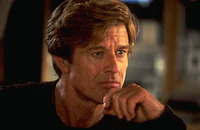Incident at Oglala
Brief Synopsis
Cast & Crew
Michael Apted
John Trudell
Robert Redford
Leonard Peltier
Maryse Alberti
Maryse Alberti
Film Details
Technical Specs
Synopsis
Drama based on a court case involving American Indian activist Leonard Peltier, convicted for allegedly killing two FBI agents and another Native American in a shoot-out on the Pine Ridge Reservation in South Dakota in June 1975. Peltier is currently serving two consecutive life sentences.
Director
Michael Apted
Crew
Maryse Alberti
Maryse Alberti
Jackson Browne
Arthur Chobanian
Bonni Lee
Leonard Peltier
Robert Redford
Susanne Rostock
Chip Selby
John Trudell
John Trudell
Ray Zimmerman
Videos
Movie Clip


Film Details
Technical Specs
Articles
Incident at Oglala
The documentary Incident at Oglala (1992), produced and narrated by Robert Redford and directed by Michael Apted, focuses on the events leading to Peltier's conviction, and lays out a convincing case that Peltier was unjustly convicted. The film establishes the circumstances that led up to the case. Pine Ridge was a grim place, poor and depressed and ruled with an iron hand by government agents and Native American thugs. Peltier and the other defendants were members of the militant American Indian Movement (AIM), which two years earlier had taken over the Wounded Knee memorial site to draw attention to the plight of Native Americans and the conditions on the reservation. The FBI, stung by the acquittal of the other two defendants, wanted to make sure that Peltier was convicted. Witnesses who testified against Peltier say they lied because the FBI threatened and intimidated them. Evidence was withheld at the trial.
Even 15 years after Peltier's trial, the case was so controversial that the filmmakers ran into roadblocks. According to Kenneth Turan in the Los Angeles Times, "The American Indian leaders were mistrustful, the FBI not forthcoming, the government made its attorney available only at the last minute, and it took six months of negotiations and press credentials obtained from the BBC before Peltier...was able to be interviewed."
Michael Apted began his career in documentaries, but unlike directors who abandoned factual films when they turned to narrative features, Apted has continued to do both throughout his career, informing his fiction films with the sense of time and place that are characteristic of his docs, and his non-fiction ones with the structure, pace and urgency of a drama. As a documentarian, Apted is best known for the "Up" series made for British television. Starting with 7 Up in 1963, the films follow a group of seven-year old children of various socio-economic backgrounds. The premise of the film is that, in class-conscious Britain, social class determines destiny. Every seven years, the filmmakers returned for an update on the lives of the children as they grew, and while the original premise seems to hold, the films are a fascinating look at the evolution of contemporary British culture. Apted's other notable documentaries include Moving the Mountain (1994), about the Chinese student uprising of 1989, and The Power of the Game (2007), about the worldwide cultural impact of soccer. His narrative features range from the award-winning biopics Coal Miner's Daughter (1980) and Gorillas in the Mist (1988) to the James Bond film, The World Is Not Enough (1999).
Apted may be the only director to make both a documentary feature and a fiction film about the same subject. His 1992 film, Thunderheart, is loosely based on the events in Incident at Oglala. While the focus of Thunderheart is a bi-racial FBI agent played by Val Kilmer, the Oglala investigation is a key part of the film. The role of the Peltier-like Native American character in Thunderheart is played by real-life AIM activist John Trudell.
The same year that Incident at Oglala was released, the acquittal of four Los Angeles police officers for the brutal beating of Rodney King set off riots in Los Angeles. Several critics made comparisons with the Peltier case. John Anderson wrote in Newsday that Incident at Oglala, "opening so soon after the conflagration in Los Angeles, will probably have a profound effect on how audiences watch the film. Those who might have rejected its premise...will probably be more likely to accept it now. And those who do accept it won't be as outraged by the injustices involved, simply because they won't be as surprised."
In 2009, Peltier's latest parole request was denied. His next hearing is scheduled for 2024. Peltier will be nearly 80 years old then.
Producer: Arthur Chobanian
Director: Michael Apted
Cinematography: Maryse Alberti
Film Editing: Susanne Rostock
Cast: Norman Zigrossi (Himself - Former Assistant FBI Regional Head, South Dakota), Robert Sikma (Himself - Former Assistant U.S. Attorney), Darelle 'Dino' Butler (Himself), Bob Robideau (Himself), Norman Brown (Himself), Leonard Peltier (Himself (archive footage)), Duane Brewer (Himself - Former Goon Squad Member), Calvin Jumping Bull (Himself), William Muldrow (Himself - U.S. Government Commission on Civil Rights), Dennis Banks (Himself - Co-Founder American Indian Movement).
C-93m.
by Margarita Landazuri

Incident at Oglala
Quotes
Trivia
Miscellaneous Notes
Released in United States 1992
Released in United States January 1992
Released in United States on Video October 28, 1992
Released in United States September 1992
Released in United States Spring May 8, 1992
Shown at San Francisco International Film Festival April 23 - May 7, 1992.
Shown at Sundance Film Festival (special screening) in Park City, Utah January 16-26, 1992.
Shown at Venice Film Festival (Window on Images) September 1-12, 1992.
Completed shooting September 1991.
Released in United States 1992 (Shown at San Francisco International Film Festival April 23 - May 7, 1992.)
Released in United States January 1992 (Shown at Sundance Film Festival (special screening) in Park City, Utah January 16-26, 1992.)
Released in United States Spring May 8, 1992
Released in United States September 1992 (Shown at Venice Film Festival (Window on Images) September 1-12, 1992.)
Released in United States on Video October 28, 1992














